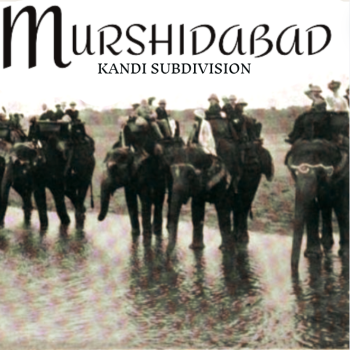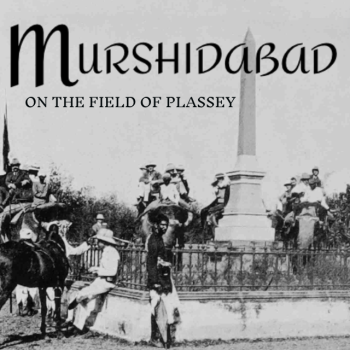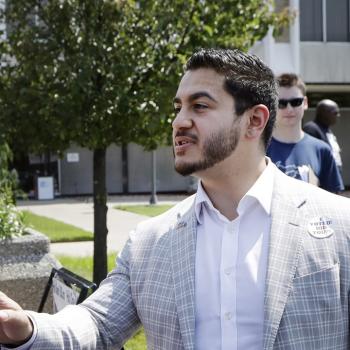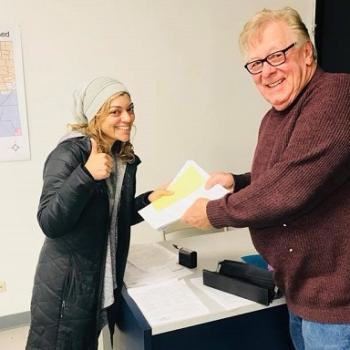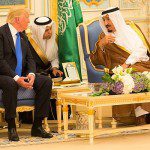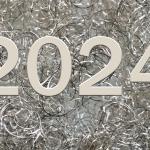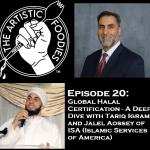 |
|
A greener point of view
|
New York City-native Ibrahim Abdul-Matin has his work cut out for him. Not because there is anything inherently wrong with his premise that Islam is eco-friendly at its core, but because Islam’s image has been dominated these days by political matters and the threat of violence. Nevertheless, his comprehensive book, Green Deen: What Islam Teaches About Protecting the Planet (Berrett-Koehler Publishers), makes a strong case for responsible consumption and energy conservation – with Islamic principles firmly connected to them. It even got a fair shake on Fox News of all places, so there’s hope that a more positive message will make its way through the headlines. Ibrahim speaks with us here about his book and what Islam and spirituality can teach us about our environment.
![]() Tell us a little about your background – both religious and professional – and how it prepared you to write this book.
Tell us a little about your background – both religious and professional – and how it prepared you to write this book.
In terms of my professional backround, I come from an organizing background, working in social justice, with people of color, young people. Specifically what I’ve done is develop a directory of youth organizing in the United States, research for the Inner City Muslim Action Network on Muslims in New York City, gathering qualitative information about people and helping people make decisions on how they live their lives. I helped start an environmental high school in Brooklyn – the Brooklyn Academy for Science and the Environment in 2003. I’ve done a lot of work with bringing young people into the natural world, connecting them through courses, experiential education, and through Outward Bound, where I was an instructor. And then I’ve done some technology stuff, software, Web 2.0 – had some terribly failed adventures in that arena and learned an incredible amount about what it takes to successfully do a new media/social media project.
Islamically, I’m not a scholar by any stretch of anyone’s imagination. My training has been very informal and I went through only a small amount of formal Arabic schooling at the Zaytuna Institute under Ustad Usama Canon. I’ve had a rare experience about being around two very unique American Muslim imams – Imam Siraj Wahaj where I grew up near Masjid Taqwa, and also Sheikh Mukhtar Magrawi. I know they have very different styles, but I think I benefitted from being exposed to them at a young age, at an impressionable point in my life.
![]() You talk about the “Six principles of a Green Deen.” Could you tell us more about them?
You talk about the “Six principles of a Green Deen.” Could you tell us more about them?
Clearly there is a lot more that you can say, but what I tried to do was to build on some work done by a young man named Faraz Khan, who works at the environmental agency in New Jersey. He had done a lot of research on what scholars have said about the environment. He made a matrix that looked at different justifications that they used, different principles that they had cited. Out of all of them, these six that I chose were the ones that he identified that all of [the scholars] had used in their justifications, or when speaking about the environment or man’s responsibility to the earth. That’s how I chose them – it wasn’t a very scientific thing from my perspective, it was really building off of Faraz’s work.
![]() One theme of Green Deen is that of overconsumption – of resources, energy, food, and water. What has led those in modern society, from all religions and socio-economic backgrounds, to consume so much? Are we simply not aware of the impact of our lifestyles?
One theme of Green Deen is that of overconsumption – of resources, energy, food, and water. What has led those in modern society, from all religions and socio-economic backgrounds, to consume so much? Are we simply not aware of the impact of our lifestyles?
I think we’re quite aware of it. People have been sounding alarms about what we’re going to do to our natural world for well over 100 years. It’s more that we define value in things, in what we can acquire. That’s why I make a critique in the book – and I think many scholars have said this – that, specifically, Islam is not capitalistic or socialistic. We define our value by our relationships and our knowledge of our own selves and our relationship to Allah. And I think that most people in the world – Muslim, Christian, whoever they are, whether their religion tells them to or not – in every faith, you define your value in how well you understand yourself and how well you understand this ultimate reality. These systems that put money in the middle of that drive us away from that knowledge of ourselves and that knowledge of our creator.
We are like byproducts. We are like raw materials. We are like packaged goods. And that’s how we treat ourselves and how we treat the earth.
![]() Without being too cynical, Muslim societies have not always been examples of responsible consumption. Why hasn’t the inherent environmentalist message in Islamic teachings stuck, particularly when compared to eco-movements in the West?
Without being too cynical, Muslim societies have not always been examples of responsible consumption. Why hasn’t the inherent environmentalist message in Islamic teachings stuck, particularly when compared to eco-movements in the West?
The one thing that I always think about is that most of the Muslim world has been a little behind the times based on colonialism. That’s one thing to keep in mind. In terms of why hasn’t it stuck, I think that’s a deeper question about religious people in general. We think that just because we have God’s book, we’re right no matter what.
![]() Which leads to complacency.
Which leads to complacency.
Exactly. So even if we’re not following the letter of Islamic law or Christian law or Jewish law, we assume that just because we are those people, we say whatever declarative statements that define us and then it’s all good. I think that’s the hubris of being a religious person and that’s one of the great challenges that we face is to get over that and to be more humble.
![]() Carbon dependence – you use the analogy of energy from “heaven” or “hell” to describe carbon-based or renewable energy – is a major source of detriment to the planet. Considering the enormous role that oil plays in the Muslim world, how do you see us realistically reducing our use of fossil fuels?
Carbon dependence – you use the analogy of energy from “heaven” or “hell” to describe carbon-based or renewable energy – is a major source of detriment to the planet. Considering the enormous role that oil plays in the Muslim world, how do you see us realistically reducing our use of fossil fuels?
I think that is one of the great challenges we face. You hit it right on. People are going to have to not be as flush at a certain point, and that’s going to have to be ok. The Prophet Muhammad (saw) said that the fitna of the Arabs was money. That is their fitna and it will continue to be, and it becomes more manifested as time goes on. And each community has its own challenges specific to their disposition.
I think the best thing that can happen is not to focus on what they are doing. The best thing to happen is for nations like Indonesia and Malaysia to lead by example and show a dynamic economic model that’s rooted in Islam and rooted in democratic principles that will be a beacon and shine brighter than any mound of money or any, sort of, “I am the holder of the true Islam.” The true example will show itself clearly.
![]() What have been some of the new developments in green halal food products? What can Halal products in the marketplace offer to consumers, be they Muslim or not, that is superior to their non-Halal counterparts?
What have been some of the new developments in green halal food products? What can Halal products in the marketplace offer to consumers, be they Muslim or not, that is superior to their non-Halal counterparts?
Well, I have nothing but good things to say about Saffron Road [halal entrees sold in Whole Foods Market], in particular.
I’m not telling people, and I don’t think we’re telling people, that we should be going back to an agrarian lifestyle tomorrow, or that they automatically have to turn off every machine they use and run away to the caves. We have to be like the sunnah of the Prophet (saw) and meet people where they’re at. The development of Islam in its early stages was over a long period of time. Things came down when they were relevant and they had context.
Right now that’s what I think they’re doing with Saffron Road, is that it’s relevant, it has context. Adnan [Durrani, Saffron Road’s CEO] has knowledge about how to grow a food company that has values instilled, not just in its rhetoric, but in the operational logistics. This is brought into a space where there’s a growing need, a growing market.
Bringing something to scale that is deeply rooted in our tradition and our values is something that is sorely needed in our world. Because if you look at it, most of the secular movements that existed in the 20’s and 30’s and 40’s that created most of the modern Arab states, most of those things rejected the traditional structure of Islamic finance, how to govern the marketplace, how to manage food – rejected them to our deficit. Groups like Halal Advocates, Green Zabiha, and the tons of community farms and partnerships with Christians that are doing this. This is an example of the traditional way in a modern context.
You can’t always say, “Let’s go back to the old days.” No, we don’t want to go back. We want to do things better than they’ve ever been done before. And I think that Saffron Road is in that mode of thinking. How can we do it better?
I’ll say this though. The way that it’s going to be done, we can’t even imagine and it’ll probably be way better than anything we can even think of right now.
![]() What about meat consumption? Aren’t Muslims greater consumers of meat than others and doesn’t that adversely affect the environment more than, say, a vegetarian diet?
What about meat consumption? Aren’t Muslims greater consumers of meat than others and doesn’t that adversely affect the environment more than, say, a vegetarian diet?
I think that there’s an argument for a vegetarian framework, even vegan, if for nothing else than to make a statement when the industrial food complex is so terrible to animals. The way the animals live their lives, that’s probably the primary thing. We’ve been called to respect the sanctity of life in all forms. And we can also dramatically reduce our carbon impact if we eat less meat. Those are two things that really call me to question things.
A lot of people have really started to look at the sunnah and the lives of the sahaba and think, “How did they relate to this? How much meat did they eat?” From what I understand and from the people I’ve spoken with that have studied this more than I have, meat is sort of a special thing. There’s a lot of vegetables and dhal and rice and other things that comprise our diet. We can be a lot healthier.
The other thing is that the Prophet was always fit. Up until his last days, he had a flat stomach, he was in shape. I think a lot of us have gotten far away from that. Those are parts of the conversation.
![]() Are there any other hopeful signs that Muslims and others are taking examples from their religion to better care for themselves and the planet?
Are there any other hopeful signs that Muslims and others are taking examples from their religion to better care for themselves and the planet?
I think there’s starting to be recognition and a movement. There’s an environmental movement in Iran on the ground, not necessarily within the government. And clearly the UK is, in terms of Islam and the environment, the Muslim community is far ahead of any Muslim community in the world, really, in the understanding and the recognition of the value of being more environmentally conscious.
There’s also a climate action plan that was enacted, I think, in 2009 when a group of Muslim nations and different religious leaders came together in Turkey and talked about how they can do things like make the haj greener and how to prepare Muslim countries for what’s going to happen with climate change.
There’s a woman named Nana Firman in Indonesia and she’s doing work specifically around climate adaptation, preparing communities so that they’re resilient in case of these sharp shifts in climate and how they can affect these low lying countries in different areas. But what’s significant about her and a bunch of other leaders is that there’s a very large and growing Muslim undercurrent that’s connecting internationally that’s beyond borders, which is beautiful. It’s really a reflection of the Prophet’s last sermon that said there’s no superiority in Islam with race. And that’s coming about in this really subtle way with the topic of the environment and how Muslim countries address that.
Zahed Amanullah is Executive Editor of altmuslim.com



